56 have author last names that start with A have author last names that start with A
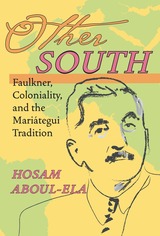
Engaging with ideas and thinkers from the former colonies, Aboul-Ela draws on an understanding of economics, social structures, and the colonial/neocolonial status of the Third World, stepping outside the preconceptions of current postcolonial studies to offer a fresh perspective on our shared literary heritage and a new look at an iconic literary figure.

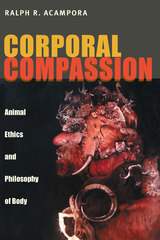
Most approaches to animal ethics ground the moral standing of nonhumans in some appeal to their capacities for intelligent autonomy or mental sentience. Corporal Compassion emphasizes the phenomenal and somatic commonality of living beings; a philosophy of body that seeks to displace any notion of anthropomorphic empathy in viewing the moral experiences of nonhuman living beings. Ralph R. Acampora employs phenomenology, hermeneutics, existentialism and deconstruction to connect and contest analytic treatments of animal rights and liberation theory. In doing so, he focuses on issues of being and value, and posits a felt nexus of bodily being, termed symphysis, to devise an interspecies ethos. Acampora uses this broad-based bioethic to engage in dialogue with other strains of environmental ethics and ecophilosophy.
Corporal Compassion examines the practical applications of the somatic ethos in contexts such as laboratory experimentation and zoological exhibition and challenges practitioners to move past recent reforms and look to a future beyond exploitation or total noninterference--a posthumanist culture that advocates caring in a participatory approach.
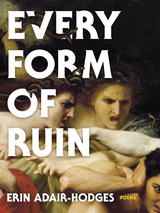

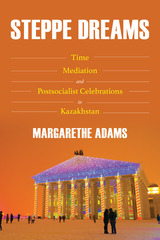
Adams examines the political, public aspects of temporality and the personal and emotional aspects of these events, providing a view into how time, mighty and unstoppable, is experienced in Kazakhstan.
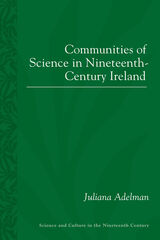
Adelman’s study examines the practical educational impact of the growth of science in these communities, and the impact of this on the country’s economy; the role of museums and exhibitions in spreading scientific knowledge; and the role that science had to play in Ireland’s turbulent political context.
Adelman challenges historians to reassess the relationship between science and society, showing that the unique situation in Victorian Ireland can nonetheless have important implications for wider European interpretations of the development of this relationship during a period of significant change.
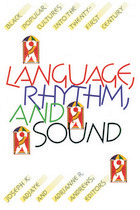
Focusing on expressions of popular culture among blacks in Africa, the United States, and the Carribean this collection of multidisciplinary essays takes on subjects long overdue for study. Fifteen essays cover a world of topics, from American girls’ Double Dutch games to protest discourse in Ghana; from Terry McMillan’s Waiting to Exhale to the work of Zora Neale Hurston; from South African workers to Just Another Girl on the IRT; from the history of Rasta to the evolving significance of kente clothl from rap video music to hip-hop to zouk.
The contributors work through the prisms of many disciplines, including anthropology, communications, English, ethnomusicology, history, linguistics, literature, philosophy, political economy, psychology, and social work. Their interpretive approaches place the many voices of popular black cultures into a global context. It affirms that black culture everywhere functions to give meaning to people’s lives by constructing identities that resist cultural, capitolist, colonial, and postcolonial domination.
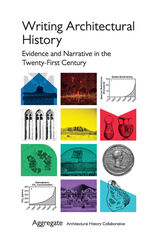
Over the past two decades, scholarship in architectural history has transformed, moving away from design studio pedagogy and postmodern historicism to draw instead from trends in critical theory focusing on gender, race, the environment, and more recently global history, connecting to revisionist trends in other fields. With examples across space and time—from medieval European coin trials and eighteenth-century Haitian revolutionary buildings to Weimar German construction firms and present-day African refugee camps—Writing Architectural History considers the impact of these shifting institutional landscapes and disciplinary positionings for architectural history. Contributors reveal how new methodological approaches have developed interdisciplinary research beyond the traditional boundaries of art history departments and architecture schools, and explore the challenges and opportunities presented by conventional and unorthodox forms of evidence and narrative, the tools used to write history.
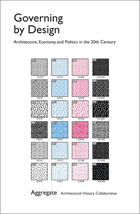
Governing by Design offers a unique perspective on twentieth-century architectural history. It disputes the primacy placed on individuals in the design and planning process and instead looks to the larger influences of politics, culture, economics, and globalization to uncover the roots of how our built environment evolves.
In these chapters, historians offer their analysis on design as a vehicle for power and as a mediator of social currents. Power is defined through a variety of forms: modernization, obsolescence, technology, capital, ergonomics, biopolitics, and others. The chapters explore the diffusion of power through the establishment of norms and networks that frame human conduct, action, identity, and design. They follow design as it functions through the body, in the home, and at the state and international level.
Overall, Aggregate views the intersection of architecture with the human need for what Foucault termed “governmentality”—societal rules, structures, repetition, and protocols—as a way to provide security and tame risk. Here, the conjunction of power and the power of design reinforces governmentality and infuses a sense of social permanence despite the exceedingly fluid nature of societies and the disintegration of cultural memory in the modern era.
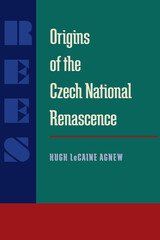
Hugh Agnew develops the argument that Czechoslovakia's celebrated national revival of the mid-eighteenth century has its intellectual roots in the Enlightenment and defined the nation's character and future development. He describes how intellectuals in eighteenth-century Bohemia and Moravia--the “patriotic intelligentsia”--used their discovery of pre-seventeenth-century history and literature to revive the antiquated Czech vernacular and cultivate a popular ethnic consciousness. Agnew also traces the significance of the intellectual influences of the wider Slavic world whereby Czech intellectuals redefined their ethnic and cultural heritage.
Origins of the Czech National Renascence contributes to a renewed interpretation of a crucial period in Czech history.
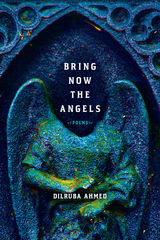
With poems that are by turns elegiac, biting, and tender, Bring Now the Angels conveys a desire to move toward transformation and rebirth, even among seemingly insurmountable obstacles: chronic disease, corporate greed, environmental harm, and a general atmosphere of anxiety and violence.
BRING NOW THE ANGELS
To test your pulse as you sleep.
Bring the healer the howler the listening ear—
Bring an apothecary to mix the tincture—
We need the salve
the tablet the capsule
of the hour— Bring sword-eaters
and those who will swallow fire—
Fetch the guardian
to flatten the wheelchair,
to hoist it toward heaven:
the public shuttle awaits
the ceaseless trips to the clinic.
To the bedside manner
summon witness: this medic’s
disdain toward patients the physician’s dismissal
of pain—
And call the druggist, again, to drug us senseless—
Bring a nomad to index our debts
tuck each invoice into broken walls
of regret— Call the cleric the clerk
the messengers divine—
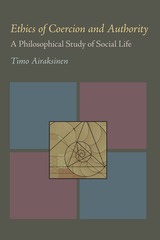
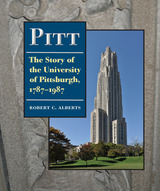
The story begins in the early spring of 1781, when an ambitious young Philadelphia lawyer named Hugh Henry Brackenridge crossed the Alleghenies to seek his opportunity in Pittsburgh. “My object,”?he wrote, “was to advance the country [Western Pennsylvania] and thereby myself.” He founded Pittsburgh Academy, later to be the Western University of Pennsylvania and then the University of Pittsburgh, and lived to see the school grow along with the city.
Author Robert C. Alberts, mines the University archives and describes many issues for the first time. Among them is the role played by the Board of Trustees in the conflicts of the administration of Chancellor John Gabbert Bowman, including the firing of a controversial history professor, Ralph Turner; the resignation of the legendary football coach, Jock Sutherland; and a Board investigation into Bowman’s handling of faculty and staff. We see Pitt’s decade of progress under Edward Litchfield (1956–165), who gambled that the millions of dollars he spent . . . would be forthcoming form somewhere or someone; but who, as it turned out was mistaken.”
Pitt became a state-related university in August 1966, but financial stability was achieved gradually during the administration of Chancellor Wesley W. Posvar. The ensuing crisis of the 1960s and early 1970, caused by the Vietnam War, and the student protests that accompanied it, are described in rich detail. The history then follows Pitt’s emergence as a force in international higher education; the institution’s role in fostering a cooperative relationship with business; and its entry into the postindustrial age of high technology.
The story of Pitt reflects all the struggles and the hopes of the region. As Alberts writes in his preface, “There was drama; there was tragedy; there was indeed controversy and politics. There were, unexpectedly, rich veins of humor, occasionally of comedy.”
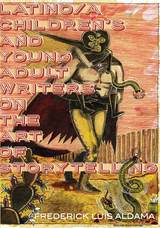
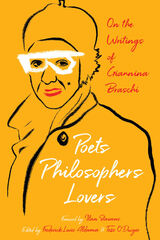
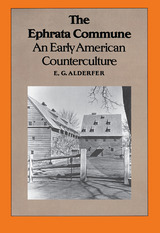
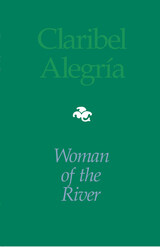
As Carolyn Forche has written of Alegria’s previous selection of poems, Flowers from the Volcano: “These poems are testimonies to the value of a single human memory, political in the sense that there is no life apart from our common destiny. They are poems of passionate witness and confrontation. Responding to those who would state that politics has no place in poetry, she would add her voice to that of Neruda’s: we do not wish to please them . . . .” She carries within her the ancient blood of the Pipiles and laces her language with mesitizo richness.”
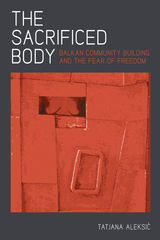
In The Sacrificed Body, Tatjana Aleksic examines the widespread use of the sacrificial metaphor in cultural texts and its importance to sustaining communal ideologies in the Balkan region. Aleksic further relates the theme to the sanctioning of ethnic cleansing, rape, and murder in the name of homogeneity and collective identity. Aleksic begins her study with the theme of the immurement of a live female body in the foundation of an important architectural structure, a trope she finds in texts from all over the Balkans. The male builders performing the sacrificial act have been called by a higher power who will ensure the durability of the structure and hence the patriarchal community as a whole.
In numerous examples ranging from literature to film and performance art, Aleksic views the theme of sacrifice and its relation to exclusion based on gender, race, class, sexuality, religion, or politics for the sake of community building. According to Aleksic, the sacrifice narrative becomes most prevalent during times of crisis brought on by wars, weak governments, foreign threats, or even globalizing tendencies. Because crisis justifies the very existence of restrictive communities, communalist ideology thrives on its perpetuation. They exist in a symbiotic relationship. Aleksic also acknowledges the emancipatory potential of a genuine community, after it has shaken off its ideological character.
Aleksic employs cultural theory, sociological analysis, and human rights studies to expose a historical narrative that is predominant regionally, if not globally. As she determines, in an era of both Western and non-Western neoliberalism, elitist hegemony will continue to both threaten and bolster communities along with their segregationist tactics.
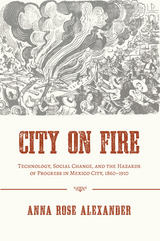
City on Fire demonstrates that both public and private engagements with fire risk highlight the inequalities that characterized Mexican society at the turn of the twentieth century.
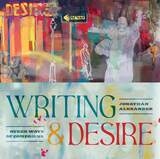
Writing and Desire is a sustained, multimovement exploration of how writers, particularly queer writers, think and feel through desire as central to their writing practice. In a time of political, social, global, and ecological unrest, how might we understand desire—the desire for things to be different, the desire for a better world—as a crucial dimension of contemporary human experience? What might such a recentering of desire offer us, personally and politically? And how is writing itself, as one of the primary ways through which we express and explore ourselves, central to the expression and exploration of desire? Drawing on recent theoretical work in queer theory and the new materialism, Jonathan Alexander studies a range of queer and trans writers and artists who center desire in their practice and argues that conceptualizing writing as desire allows us to reexperience both writing and our world as saturated with our dreams and wishes for change. In a book both elegant and unsettling, and by turns personal, analytic, and experimental, Alexander challenges us—and himself—to think about desire and writing as the deepest manifestation of our hopes for the future.
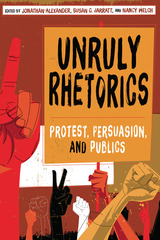
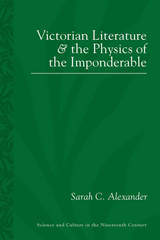
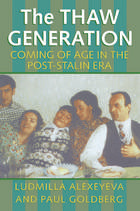
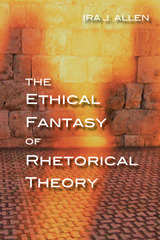
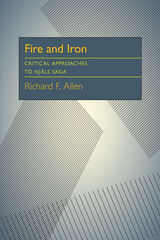
Written in Iceland by an unknown author about 1280, Njáls saga has been called the greatest work of vernacular prose fiction from the European Middle Ages. Allen's finely written and perceptive study is one of the first in English to offer a critical examination of the text.
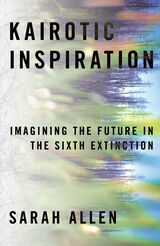
On the precipice of the Sixth Extinction, we face a frightening fate—ongoing ecological crises that may result in not only the extinction of a million species within decades but another mass extinction event like the one that wiped out the dinosaurs. In Kairotic Inspiration: Imagining the Future in the Sixth Extinction, Sarah Allen suggests that humans face this future, whatever it brings, by attending to the ways in which all beings are caught in the entangled processes of becoming. But change is often painful and requires inspiration. Allen explores a theory that shifts the concept of inspiration away from the unique genius of the individual and instead situates it within conceptual, human and nonhuman animal relations that can disrupt the state of being. To expand the understanding of change beyond the polarized binary that defines difference, the author builds on Nietzsche’s conceptualization of the Dionysian, which explains how the self is unmade through immersive experiences. This unmaking creates room for a different experience of becoming, one which Donna Haraway calls “becoming-with” and “producing-with.” In the end, Allen demonstrates how deepening kairotic connections can transform us as beings, thrusting us further into the processes of becoming and embracing the change that is possible in this living, changing, endangered world.

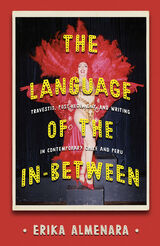
Often, the process of modern state formation is founded on the marginalization of certain groups, and Latin America is no exception. In The Language of the In-Between, Erika Almenara contends that literary production replicates this same process. Looking at marginalized communities in Chile and Peru, particularly writers who are travesti, trans, cuir/queer, and Indigenous, the author shows how these writers stake a claim for the liminal space that is neither one thing nor the other. This allows a freedom to expose oppression and to critique a national identity based on erasure. By employing a language of nonnormative gender and sexuality to dispute the state projects of modernity and modernization, the voice of the poor and racialized travesti evolves from powerlessness to become an agent of social transformation.
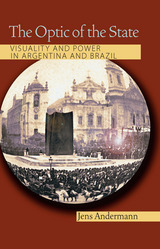
The purpose of these imaginaries was to vindicate the political upheavals of the recent past and secure the viability of the newly independent states through a sense of historic destiny and inevitable evolution. The careful presentation of artifacts and spectacles was also aimed abroad in order to win the favor of European imperial powers and thereby acquire a competitive place in the nascent global economy of the late nineteenth century.
The Optic of the State offers a fascinating critique of the visual aspects of national mythology. It exposes how scientific and cultural institutions inscribed the state-form in time and space, thus presenting historical processes as natural “givens.”
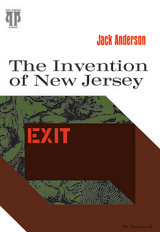
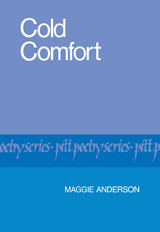

"We are struck by the generosity of a voice that manages to bridge the gap between a personal and a world view, a balance that reveals a narrator who is of the world yet not overwhelmed by it."
—Prairie Schooner
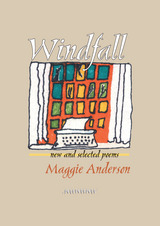
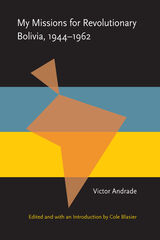
Andrade first came to Washington as ambassador in 1944, representing a young revolutionary government determined to check the power of the Bolivian tin barons who had dominated the country for decades. After his government was overthrown, he spent six years in exile, and returned to Washington when the Movimiento Nacionalista Revolucionario resumed power in 1952. His deep understanding of Washington's massive political and bureaucratic establishment, combined with his renowned charm, resourcefulness, and perseverance, gave him the ability to negotiate massive economic and military aid for the development of the country. It also allows him to present a candid, knowledgeable inside view of U.S.-Bolivian relations through these years which will at times make U.S. readers proud and at times ashamed.

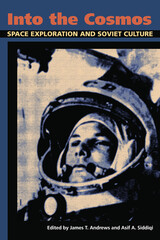
The launch of the Sputnik satellite in October 1957 changed the course of human history. In the span of a few years, Soviets sent the first animal into space, the first man, and the first woman. These events were a direct challenge to the United States and the capitalist model that claimed ownership of scientific aspiration and achievement.
The success of the space program captured the hopes and dreams of nearly every Soviet citizen and became a critical cultural vehicle in the country’s emergence from Stalinism and the devastation of World War II. It also proved to be an invaluable tool in a worldwide propaganda campaign for socialism, a political system that could now seemingly accomplish anything it set its mind to.
Into the Cosmos shows us the fascinating interplay of Soviet politics, science, and culture during the Khrushchev era, and how the space program became a binding force between these elements. The chapters examine the ill-fitted use of cosmonauts as propaganda props, the manipulation of gender politics after Valentina Tereshkova’s flight, and the use of public interest in cosmology as a tool for promoting atheism. Other chapters explore the dichotomy of promoting the space program while maintaining extreme secrecy over its operations, space animals as media darlings, the history of Russian space culture, and the popularity of space-themed memorabilia that celebrated Soviet achievement and planted the seeds of consumerism.

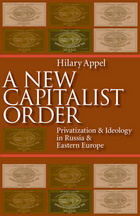
After the collapse of communism in the Soviet Union and eastern Europe, more than a dozen countries undertook aggressive privatization programs. Proponents of economic reform championed such large-scale efforts as the fastest, most reliable way to make the transition from a state-run to a capitalist economy.
The idea was widely embraced, and in the span of a few years, policymakers across the region repeatedly chose an approach that distributed vast amounts of state property to the private sector essentially for free-despite the absence of any historical precedent for such a radical concept. But privatization was not a panacea. It has, instead, become increasingly synonymous with collusion, corruption, and material deprivation.
Why was privatization so popular in the first place, and what went wrong? In answering this question, Hillary Appel breaks with mainstream empirical studies of postcommunist privatization.
By analyzing the design and development of programs in Russia, the Czech Republic, and across eastern Europe, Appel demonstrates how the transformation of property rights in these countries was first and foremost an ideologically driven process. Looking beyond simple economic calculations or pressure from the international community, she argues that privatization was part and parcel of the foundation of the postcommunist state.
A New Capitalist Order reveals that privatization was designed and implemented by pro-market reformers not only to distribute gains and losses to powerful supporters, but also to advance a decidedly Western, liberal vision of the new postcommunist state. Moreover, specific ideologies-such as anticommunism, liberalism, or nationalism, to name but a few-profoundly influenced the legitimacy, the power, and even the material preferences of key economic actors and groups within the privatization process.
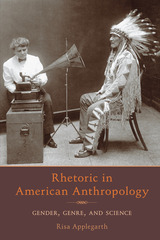
Applegarth analyzes scores of ethnographic monographs to demonstrate how early anthropologists intensified the constraints of genre to define their community and limit the aims and methods of their science. But in the 1920s and 1930s, professional researchers sidelined by the academy persisted in challenging the field’s boundaries, developing unique rhetorical practices and experimenting with alternative genres that in turn greatly expanded the epistemology of the field. Applegarth demonstrates how these writers’ folklore collections, ethnographic novels, and autobiographies of fieldwork experiences reopened debates over how scientific knowledge was made: through what human relationships, by what bodies, and for what ends. Linking early anthropologists’ ethnographic strategies to contemporary theories of rhetoric and composition, Rhetoric in American Anthropology provides a fascinating account of the emergence of a new discipline and reveals powerful intersections among gender, genre, and science.
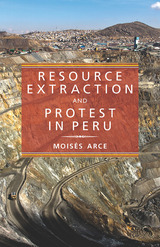
In this groundbreaking study, Moisés Arce exposes a longstanding climate of popular contention in Peru. Looking beneath the surface to the subnational, regional, and local level as inception points, he rigorously dissects the political conditions that set the stage for protest. Focusing on natural resource extraction and its key role in the political economy of Peru and other developing countries, Arce reveals a wide disparity in the incidence, forms, and consequences of collective action.
Through empirical analysis of protest events over thirty-one years, extensive personal interviews with policymakers and societal actors, and individual case studies of major protest episodes, Arce follows the ebb and flow of Peruvian protests over time and space to show the territorial unevenness of democracy, resource extraction, and antimarket contentions. Employing political process theory, Arce builds an interactive framework that views the moderating role of democracy, the quality of institutional representation as embodied in political parties, and most critically, the level of political party competition as determinants in the variation of protest and subsequent government response. Overall, he finds that both the fluidity and fragmentation of political parties at the subnational level impair the mechanisms of accountability and responsiveness often attributed to party competition. Thus, as political fragmentation increases, political opportunities expand, and contention rises. These dynamics in turn shape the long-term development of the state.
Resource Extraction and Protest in Peru will inform students and scholars of globalization, market transitions, political science, contentious politics and Latin America generally, as a comparative analysis relating natural resource extraction to democratic processes both regionally and internationally.
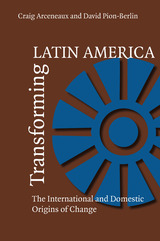
This ambitious book offers a clear and unified framework for understanding political change across Latin America. The impact of U.S. hegemony and the global economic system on the region is widely known, and scholars and advocates alike point to Latin America’s vulnerability in the face of external forces. In spite of such foreign pressure, however, individual countries continue to chart their own courses, displaying considerable variation in political and economic life.
Looking broadly across the Western Hemisphere, with examples from Brazil, the Southern Cone, the Andes, and Central America, Arceneaux and Pion-Berlin identify general rules that explain how international and domestic politics interact in specific contexts. The detailed, accessible case studies cast new light on such central problems as neoliberal economic reform, democratization, human rights, regional security, environmental degradation, drug trafficking, and immigration. And they consider not only what actors, institutions, and ideas matter in particular political contexts, but when, where, and how they matter. By dividing issues into the domains of "high" and "low" politics, and differentiating between short-term problems and more permanent concerns, they create an innovative typology for analyzing a wide variety of political events and trends.
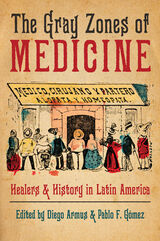
Winner, 2022 Outstanding Academic Title, CHOICE Awards
Health practitioners working in gray zones, or between official and unofficial medicines, played a fundamental role in shaping Latin America from the colonial period onward. The Gray Zones of Medicine offers a human, relatable, complex examination of the history of health and healing in Latin America across five centuries. Contributors uncover how biographical narratives of individual actors—outside those of hegemonic biomedical knowledge, careers of successful doctors, public health initiatives, and research and medical institutions—can provide a unique window into larger social, cultural, political, and economic historical changes and continuities in the region. They reveal the power of such stories to illuminate intricacies and resilient features of the history of health and disease, and they demonstrate the importance of escaping analytical constraints posed by binary frameworks of legality/illegality, learned/popular, and orthodoxy/heterodoxy when writing about the past. Through an accessible and story-like format, this book unlocks the potential of historical narratives of healings to understand and give nuance to processes too frequently articulated through intellectual medical histories or the lenses of empires, nation-states, and their institutions.

The twentieth-century French church was still feeling the shock waves of the French Revolution, assaulted from without and torn from within regarding its role in politics. Challenging the views of prominent historians of the period, Arnal shows that between 1899 and 1939 Catholic leaders pursued a consistent strategy of political and social conservatism. Whereas many regarded the church's flirtations with social democracy and its occasional attempts to rally French Catholics behind constitutional politics as proof of its progressive character, Arnal sees a fundamentally reactionary continuity in church leadership. Pius XI did not condemn the Acton Française for its fascist ideology; he feared independence among Catholics more than the radical right.
Arnal's wide-ranging study brings a controversial new interpretation to the political and ecclesiastical history of the twentieth-century.
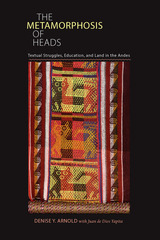
Since the days of the Spanish Conquest, the indigenous populations of Andean Bolivia have struggled to preserve their textile-based writings. This struggle continues today, both in schools and within the larger culture. The Metamorphosis of Heads explores the history and cultural significance of Andean textile writings--weavings and kipus (knotted cords), and their extreme contrasts in form and production from European alphabet-based texts. Denise Arnold examines the subjugation of native texts in favor of European ones through the imposition of homogenized curricula by the Educational Reform Law. As Arnold reveals, this struggle over language and education directly correlates to long-standing conflicts for land ownership and power in the region, since the majority of the more affluent urban population is Spanish speaking, while indigenous languages are spoken primarily among the rural poor. <I>The Metamorphosis of Heads</I> acknowledges the vital importance of contemporary efforts to maintain Andean history and cultural heritage in schools, and shows how indigenous Andean populations have incorporated elements of Western textual practices into their own textual activities.
Based on extensive fieldwork over two decades, and historical, anthropological, and ethnographic research, Denise Arnold assembles an original and richly diverse interdisciplinary study. The textual theory she proposes has wider ramifications for studies of Latin America in general, while recognizing the specifically regional practices of indigenous struggles in the face of nation building and economic globalization.

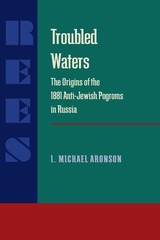
Although the pogroms are treated within the context of Russian history, Aronson's analysis has significance for Jewish studies as well. When the Russian government adopted reactionary and repressive policies, Jews began to seek new solutions to the problems that plagued them: massive numbers emigrated to the United States; other turned to revolutionary socialism; still others were attracted to Zionism and supported the creation of the state of Israel.
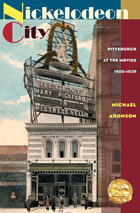
Nickelodeon City provides a detailed view inside the city's early film trade, with insights into the politics and business dealings of the burgeoning industry. Drawing from the pages of the Pittsburgh Moving Picture Bulletin, the first known regional trade journal for the movie business, Michael Aronson profiles the major promoters in Pittsburgh, as well as many lesser-known ordinary theater owners, suppliers, and patrons. He examines early film promotion, distribution, and exhibition, and reveals the earliest forms of state censorship and the ensuing political lobbying and manipulation attempted by members of the movie trade. Aronson also explores the emergence of local exhibitor-based cinema, in which the exhibitor assumed control of the content and production of film, blurring the lines between production, consumption, and local and mass media.
Nickelodeon City offers a fascinating and intimate view of a city and the socioeconomic factors that allowed an infant film industry to blossom, as well as the unique cultural fabric and neighborhood ties that kept nickelodeons prospering even after Hollywood took the industry by storm.
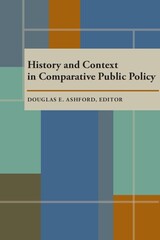
Douglas E. Ashford joins a growing number of scholars who have questioned the behavioralist assumptions of much policy science. The essays in this volume show why policy analysis cannot be confined to prevailing methods of social science. Policy-making behavior involves historical, contextual, and philosophical factors that also raise critical questions about the concepts and theory of the discipline. Ashford asks difficult questions about the contextual, conjunctural, and unintentional circumstances that affect actual decision-making. His bridging essays summarize opposing viewpoints and conflicting interpretations to help form a new agenda for comparative policy analysis.
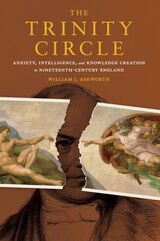
The Trinity Circle explores the creation of knowledge in nineteenth-century England, when any notion of a recognizably modern science was still nearly a century off, religion still infused all ways of elite knowing, and even those who denied its relevance had to work extremely hard to do so. The rise of capitalism during this period—embodied by secular faith, political radicalism, science, commerce, and industry—was, according to Anglican critics, undermining this spiritual world and challenging it with a superficial material one: a human-centric rationalist society hell-bent on measurable betterment via profit, consumption, and a prevalent notion of progress. Here, William J. Ashworth places the politics of science within a far more contested context. By focusing on the Trinity College circle, spearheaded from Cambridge by the polymath William Whewell, he details an ongoing struggle between the Established Church and a quest for change to the prevailing social hierarchy. His study presents a far from unified view of science and religion at a time when new ways of thinking threatened to divide England and even the Trinity College itself.

In 1985, police bombed the Philadelphia community occupied by members of the black counterculture group MOVE (short for “The Movement”). What began fifteen years earlier as a neighborhood squabble provoked by conflicting lifestyles ended in the destruction of sixty-one homes and the death of eleven residents - five of them children. Some 250 people were left homeless.
Was this tragedy the only solution to the conflict? Were John Africa and his morally and ecologically idealistic followers “too crazy” to negotiate with?
The authors interviewed MOVE members and their neighbors, third-party intervenors, and representatives of the Philadelpia administration in the 1970s, and draw on their own knowledge of the field of dispute resolution. More than simply describing a terrible event, they examine the dynamics of conflict, analyzing attempts at third-party mediation and the possibility of resolution without violence. Their analytical approach provides insight into other major conflicts, such as the problems of perception and misperception in U.S. - Iranian relations.
In an age when terrorism and hostage-taking are regular features on the six o’clock news, their questioning of traditional views on negotiation with “irrational” adversaries is especially important.


This richly illustrated volume, the first comprehensive study of Scheibler, includes 125 historic and contemporary photographs and drawings, a catalogue raisonné of all of his known projects—including many not recorded in any other published source—a list of books in his library, and a selected bibliography.
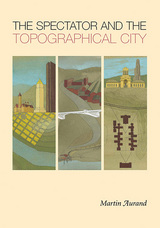
The Spectator and the Topographical City examines Pittsburgh’s built environment as it relates to the city’s unique topography. Martin Aurand explores the conditions present in the natural landscape that led to the creation of architectural forms; man’s response to an unruly terrain of hills, hollows, and rivers. From its origins as a frontier fortification to its heyday of industrial expansion; through eras of City Beautiful planning and urban Renaissance to today’s vision of a green sustainable city; Pittsburgh has offered environmental and architectural experiences unlike any other place.
Aurand adopts the viewpoint of the spectator to study three of Pittsburgh’s “terrestrial rooms”: the downtown Golden Triangle; the Turtle Creek Valley with its industrial landscape; and Oakland, the cultural and university district. He examines the development of these areas and their significance to our perceptions of a singular American city, shaped to its topography.
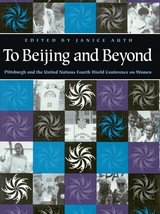
The words of these college presidents, students, teachers, homemakers, retirees, writers, clergy, and entrepreneurs who participated in the UN Fourth World Conference on Women document the remarkable initiative, energy, and vision of those who began and continue to coordinate the activities of Pittsburgh/Beijing ’95 and Beyond. Auth also offers background information on the three previous UN Women’s Conferences, outlines the work that has been accomplished since the 1995 conference, and the plans for implementing the Beijing Platform for Action at the local level. Her remarks and the stories she has collected offer an intimate portrayal of an historical event that was largely under-reported by popular media. Essential reading for anyone who wants to know what really happened and what they can do now.

Averch describes and analyzes common strategies for solving problems in public policy. The strategies discussed include the use of markets, bureaus, regulation, planning and budgeting, benefit-cost, systems analysis, and evaluation. He examines the historical development of each strategy; describes how each strategy would ideally work; explains the necessary or sufficient conditions that permit each strategy to work; lists the potential failures of each strategy; and provides a judgment or appraisal of each strategy.
READERS
Browse our collection.
PUBLISHERS
See BiblioVault's publisher services.
STUDENT SERVICES
Files for college accessibility offices.
UChicago Accessibility Resources
home | accessibility | search | about | contact us
BiblioVault ® 2001 - 2024
The University of Chicago Press









